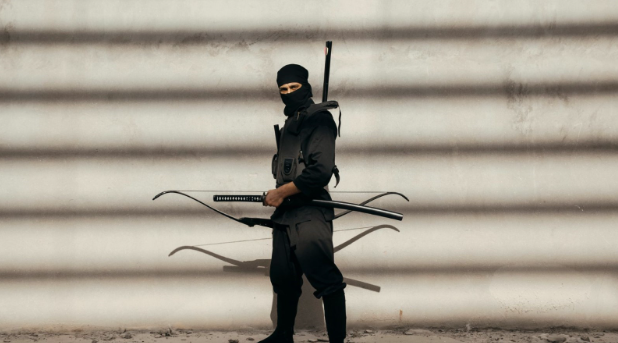Terrorists have a way of striking unannounced. Despite the scale of the attacks, the consequences are often grim and far-reaching. From instilling collective fear to shooing off investors, terrorist attacks can create chaos in a once harmonious and economically thriving society.
However, even the most devious terrorist often leaves reliable hints of their intentions. Subjecting such individuals to polygraph tests can help bring their plans to light and potentially stop them from being in their tracks.
Here’s a guide to the role of lie detector tests in foiling terrorist plots.

How Polygraph Tests May Foil Terror Attacks
Polygraphs are designed to measure changes in the autonomic nervous system (ANS) that are consistent with deception. Commonly monitored metrics include heart rate, breathing, blood pressure, and skin conductivity.
By having a suspected terrorist undergo a lie detector test, law enforcement officers can uncover hints of sinister plots and potentially thwart imminent attacks.
Usually, the subject must have exhibited behaviors associated with terrorists. These include unsolicited surveillance of critical government infrastructures, acquisition of restricted items, and prior indictments. Next, federal agencies like the FBI would subject the individual to standard questioning to hopefully allay their fears. Unsatisfactory responses may then be used as a probable cause for conducting a polygraph test.

Specific Scenarios Where Polygraphing Terror Suspects May Be Justified
1. Clearing Tourists and Immigrants
The most devastating terror attacks in history were orchestrated by individuals on valid tourist or immigration visas.
Through immigration polygraphs, responsible officers can, in select cases, verify the credibility of information provided by certain applicants—particularly in high-security or investigative contexts. While not a standard part of immigration screening, polygraph exams may be used by agencies like U.S. Customs and Border Protection or the Department of Homeland Security in specialized cases involving national security, suspected fraud, or prior criminal associations. Individuals flagged for deeper scrutiny—such as those with potential ties to terrorism—may then undergo more intensive questioning or investigation before being granted entry.
2. Screening National Security Job Applicants
The Employee Polygraph Protection Act (EPPA) prohibits private employers from undertaking mandatory polygraph tests as part of pre-employment screening.
However, many national security agencies have incorporated lie detector tests into their employee screening programs.
3. Screening Prospective Federal Contractors
Some terrorists may pose as innocuous service providers when their real objective is to access critical or classified government information.
Fortunately, conducting government contracting polygraph tests can enable federal agencies to sift genuine contractors from posers.
4. Undertaking Routine Countersurveillance
The FBI and DoD have recently admitted to using polygraph exams to investigate information leaks.
Both agencies rely on lie detector tests to support counter-intelligence activities, potentially stopping terrorists in their tracks.
5. Internet Monitoring
Social media and the internet have become a convenient tool for misinformation. Terrorist financiers can exploit online platforms to radicalize users and have them engage in unsolicited attacks.
After monitoring an individual’s online activity, law enforcement officers could take them in for questioning to establish if they pose a threat to national security. Part of this process may involve administering a lie detector test.

Types of Terrorist Activities That Polygraph Tests May Help Thwart
While historic events like 9/11 epitomize terrorism, terrorist activities can assume diverse forms. Acts of terrorism broadly fall into the following categories:
1. Domestic Terrorism
Domestic terrorism refers to acts of terror perpetrated by individuals with no foreign ties. They’re usually motivated by domestic political and social issues, with feelings of inequality being the biggest trigger.
2. International Terrorism
International terrorism is perpetrated by individuals with foreign ties. Common motivations include political and ideological differences.
3. Religious Terrorism
Religion is a leading motivation behind most terrorist activities. Asking certain polygraph questions can help law enforcement officers determine if an individual harbors religious fundamentalist ideals.
4. State-Sponsored Terrorism
State-sponsored terrorism occurs when governments use terror against their citizens. In certain cases, such as the Iran-led Axis of Resistance, the acts of aggression may also be directed at foreign citizens.
5. Nationalist-Separatist Terrorism
Individual ethnicities within a legitimately established nation may commit acts of terrorism to espouse their ethnocentric ideals. This typically occurs through targeted attacks on unifying symbols, such as the national flag.
6. Narcoterrorism
Narcoterrorism involves drug lords orchestrating well-coordinated attacks against law enforcement officers or the general public.
7. Cyberterrorism
A relatively new form of terrorism, cyberterrorism entails acts of terror waged through the internet. Examples include spreading misinformation and hacking critical government websites.
Are Polygraphs 100% Accurate?
Polygraphs are not a foolproof method of detecting deception.
While the American Polygraph Association (APA) has published guidelines requiring specific-issue lie detector tests to be at least 90% accurate, various reasons could cause a polygraph examinee to fail the test.
Examples include an inexperienced examiner, an examinee’s inadequate knowledge of the test issue, and the attempted use of countermeasures by the examiner.
To improve the accuracy of polygraph evaluations, the tests must be professionally conducted in accordance with the industry’s best practices.

Averting Devastating Terrorist Attacks With Polygraph Tests
Some terrorists may hide in plain sight, making little effort to conceal their plans. However, most prefer to blend into the shadows.
These shady characters will pose as innocuous asylum seekers evading political persecution in their countries or ambitious entrepreneurs out to pump millions into the economy. They may even masquerade as tourists attracted by our majestic landmarks and natural splendors. Without proper safeguards, terrorists can quickly exploit existing security vulnerabilities to launch vicious attacks that could change the course of our history forever.
Using polygraphs may help identify potential terrorists and thwart major attacks. Lie detector tests are particularly important where an individual has demonstrated reasonably suspicious behavior.
For the best outcome, ensure all polygraphs are conducted by a qualified examiner, particularly one who specializes in security testing.






